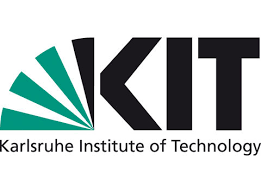Karlsruhe Institute of Technology: Public conference: Working worlds of the future
New professions, activities and the still unimaginable possible uses of technologies will influence the world of work at the end of the century and thus also our society. How this is done is questioned by the joint project FutureWork, funded by the Federal Ministry of Education and Research (BMBF), which has been scientifically dealing with future work since April 2019. “Work is a key factor in many people’s lives,” says FutureWork project manager Dr. Oliver Pfirrmann from the IQIB – Institute for Qualifying Innovation Research and Consulting. “It is therefore logical when working out future scenarios, in addition to work-specific and technological features, also economic, political and cultural aspects are taken into account.”
In the project, the researchers developed four basic scenarios. These describe both positive-utopian and critical-dystopian forms of the working world in Germany in the transition to the 22nd century. “If more people imagined that they would have to live and work on a space, lunar or Mars station with limited resources in the future, some behavior in our present would have to be reconsidered,” says Dr. Ralf Schneider, coordinator of the project at ZAK | Center for Applied Cultural Studies and General Studies of KIT. He and his colleagues designed scenarios that resulted from three objects of investigation: the results of previous futurology, resources from science fiction, and an artistic view of the distant future of work.
Work of the day after tomorrow – between science and fiction
At the conference, researchers and creative minds will deal with these scenarios and debate further questions about the work of the future. To mark the opening, there will be a panel discussion in the ZKM | on September 17, 2021 at 7:00 p.m. Center for Art and Media Karlsruhe takes place, which deals with the tension between art and the future of work. The art scholar Professor Lilian Haberer, the director Nataša von Kopp, the media scholar Dr. Lars Schmeink and the technology philosopher Mads Pankow. Greetings and an introduction will be given by Professor Peter Weibel, artistic and scientific director of the ZKM, and Professor Caroline Y. Robertson-von Trotha, scientific director of the conference and founding director of the ZAK.
The public symposium on Saturday, September 18, 2021 will be opened at 9.30 a.m. by the political scientist Professor Marius R. Busemeyer with the keynote “The future of ‘good work’ in the age of digitization”. Other debates include: Professor Barbara Deml, Head of the Institute for Ergonomics and Business Organization at KIT, Norbert Kunz, Founder and Managing Director of Social Impact gGmbH, Jochen Ehlgötz, Managing Director of TechnologieRegion Karlsruhe GmbH, and many others.
The symposium is rounded off with short readings by science fiction authors , which can be read in the current anthology “Future Work – The work of the day after tomorrow”. The publication is the result of a short story competition as part of the project and is now available in stores.
About FutureWork
The FutureWork project consists of a merger of the IQIB with the ZAK as well as the subcontractors German Aerospace Center (project sponsor), Institute for Project Management and Innovation of the University of Bremen and the Society for Fantastic Research eV The BMBF has funded the project with 260,000 since April 2019 Euro.
As “The Research University in the Helmholtz Association”, KIT creates and imparts knowledge for society and the environment. The aim is to make significant contributions to global challenges in the fields of energy, mobility and information. To this end, around 9,600 employees work together on a broad disciplinary basis in the natural, engineering, economic, humanities and social sciences. The KIT prepares its 23,300 students for responsible tasks in society, economy and science through a research-oriented university course. The innovation activity at KIT bridges the gap between knowledge and application for social benefit, economic prosperity and the preservation of our natural foundations of life.

